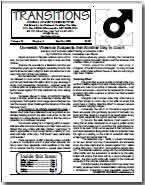An article titled “Rape Culture: What It Is and How It Works” posted on the Good Men Project website earlier this week prompted me to leave the following comment:
The “rape culture” terminology, as I’ve typically seen it applied, brands all men and boys as potential or latent assailants and perpetrators who need to be “taught not to rape.” Any man who somehow resists the inborn imperative to rape is nevertheless still considered responsible for all the men who don’t. Many boys and men who’ve been sexually violated, who are often already carrying the secret and undeserved burden of psychological responsibility for what someone else did to them, will quite naturally respond to these characterizations by retreating even deeper into the familiar phantom zone of feeling shamed, scorned, disowned, and scapegoated by the culture around them.
This, in turn, makes taking the risk of seeking help feel even more daunting. The first group I ever attended for male survivors of childhood sexual abuse was held at the local rape crisis center. I remember arriving for the first meeting one evening after work. I was so terrified. I’d been in my share of men’s groups, which helped me feel a bit safer, but I’d never spoken about that part of my history in a group of strangers. The walk from the parking lot to the front door seemed to take every ounce of strength I had.
I’ll never forget the looks I received from the women I encountered as I crossed the parking lot and entered the building. Hostility would be putting it mildly. I shrunk even further into my shell as I took a seat on one of the couches in the small waiting room, trying not to make eye contact with anyone, but I could feel the hot, disapproving glare of every woman who spotted me there.
I happened to be a bit early, and as my male peers in the group began to trickle into the waiting room and take their seats, I felt some of the energy being directed at me starting to dissipate as the focus widened from me as an individual to us (men) as a group. Safety in numbers. But I still felt profoundly unwelcome in a space where I was seeking refuge.
Over the weeks, as the group went on, the heat vision stares subsided a bit as some of the women became more accustomed to seeing us come and go once a week. We were quietly and reluctantly tolerated, if not welcomed. Discussing and processing, as a group, the experience of being treated like invaders or enemies when we were already feeling so raw, fragile, small, scared, and ashamed helped greatly. I could understand the attitude, given the “men are perpetrators, not victims” orthodoxy of the time and the likelihood that at least some of the women felt profoundly unsafe around men due to personal history. I could allow for all of that, but it didn’t make screwing up the courage to face the unearned anger, scorn, and disdain every week any less of a challenge.
The group, I’m happy to say, was excellent and made passing through the emotional and psychological gauntlet on the way in well worth the effort. The therapist who facilitated, a male, was terrific. He showed real vision and courage in proposing the establishment of a group for male survivors in that environment. I’ll always be grateful to him for that as well as to whoever it was at the center (probably a woman or women) who gave him the green light to go ahead. After the first eight weeks or so, he found a new location for us to meet, a “neutral” place, and it was a relief. I still felt anxious before each group, but the likelihood of receiving death stares (or potentially something worse) in the parking lot and waiting room was thankfully no longer a worry.
I’ve gone on far longer here than I anticipated, so I’ll close with two more points.
First, two members of my extended family were involved in the sexual violation I experienced as a child. One was a man. One was a woman. Both genders. Both involved.
Second, if you view my video poem “secret children” on this site (http://goodmenproject.com/health/the-secret-children), you will notice that there is no mention whatsoever of gender or privilege with regard to either victims or perpetrators. Countless innocent men and boys have been and are being abused and violated, and I feel that using terms like “rape culture” and “male privilege” obscures that reality and contributes to the ongoing exclusion of these men and boys from the conversation.
While I see and understand the effort on the part of the author of this post and some of those who’ve commented to expand the definition of “rape culture” to include those men and boys, from my perspective that term is already hopelessly tainted by what I’ve seen as its more commonly used, more restrictive definition (i.e., men are rapists, women are victims) and therefore I don’t see how it can be successfully reframed at this point.
I generally try to steer clear of the charged comment streams and messy, unproductive dogma dogfights I’ve seen so often in response to articles primarily focused on advancing a specific social ideology, but the increasingly common and ever more prevalent use of “rape culture” terminology has been eating at me for a while now and I finally felt it was time to express my point of view, for better or worse.
I’ll admit to feeling a fair amount of anxiety about what sort of reaction my comment might generate. I felt like I’d gone way out on a limb (or maybe marched headlong into a swamp), not only in challenging the “rape culture” paradigm but also in sharing some deeply personal experience I’d never shared before. It’s not easy for a man to go on the record with such things. The fearful voice that tells me I should keep quiet and invisible is always there with me.
It’s been nearly 24 hours now since I posted my comment and there’s been only one response, from another man who left a brief message of support. I don’t know what to make of the silence. I’m certainly not disappointed that no one’s come at me (the part of me that feels safer being invisible is pretty relieved) and I don’t want to exaggerate the significance of the situation, but the near absence of response to what I had to say in a comment stream that continues to be pretty active has me wondering, yet again, just how interested people really are in the experiences and challenges faced by male survivors of sexual violation and abuse.
Photo credit: David Jewell. Used by permission.
The A male survivor’s perspective on “rape culture” by Rick Belden, unless otherwise expressly stated, is licensed under a Creative Commons Attribution-Noncommercial-No Derivative Works 3.0 United States License.
Source: A male survivor’s perspective on “rape culture” (http://rickbelden.com/blog/2012/12/20/a-male-survivors-perspective-on-rape-culture/)



